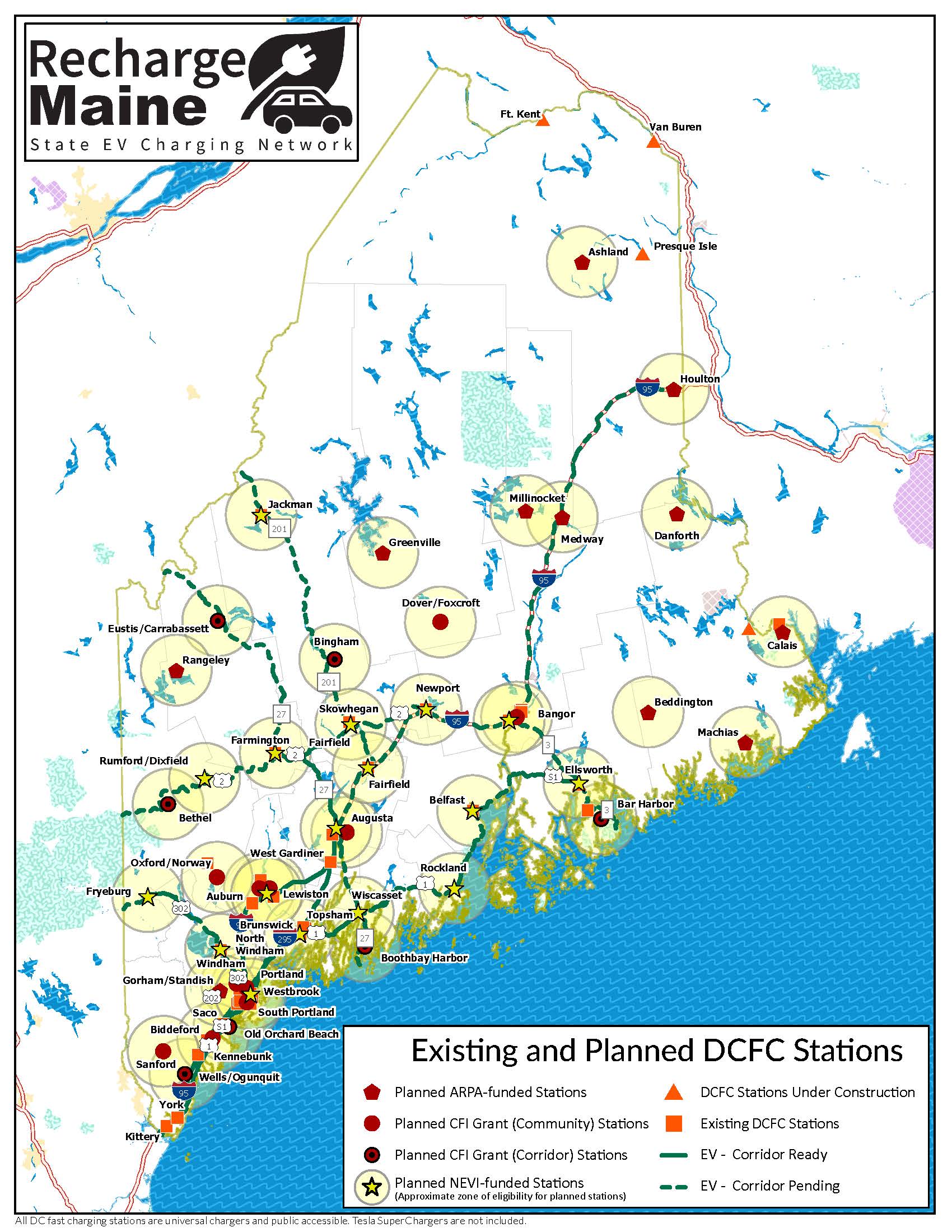
Reducing emissions through electrification
The transportation sector accounts for 49% of total emissions in Maine and is key to reducing overall state emissions. Electrification was identified in the State’s climate action plan as the #1 strategy for transportation emissions reduction.
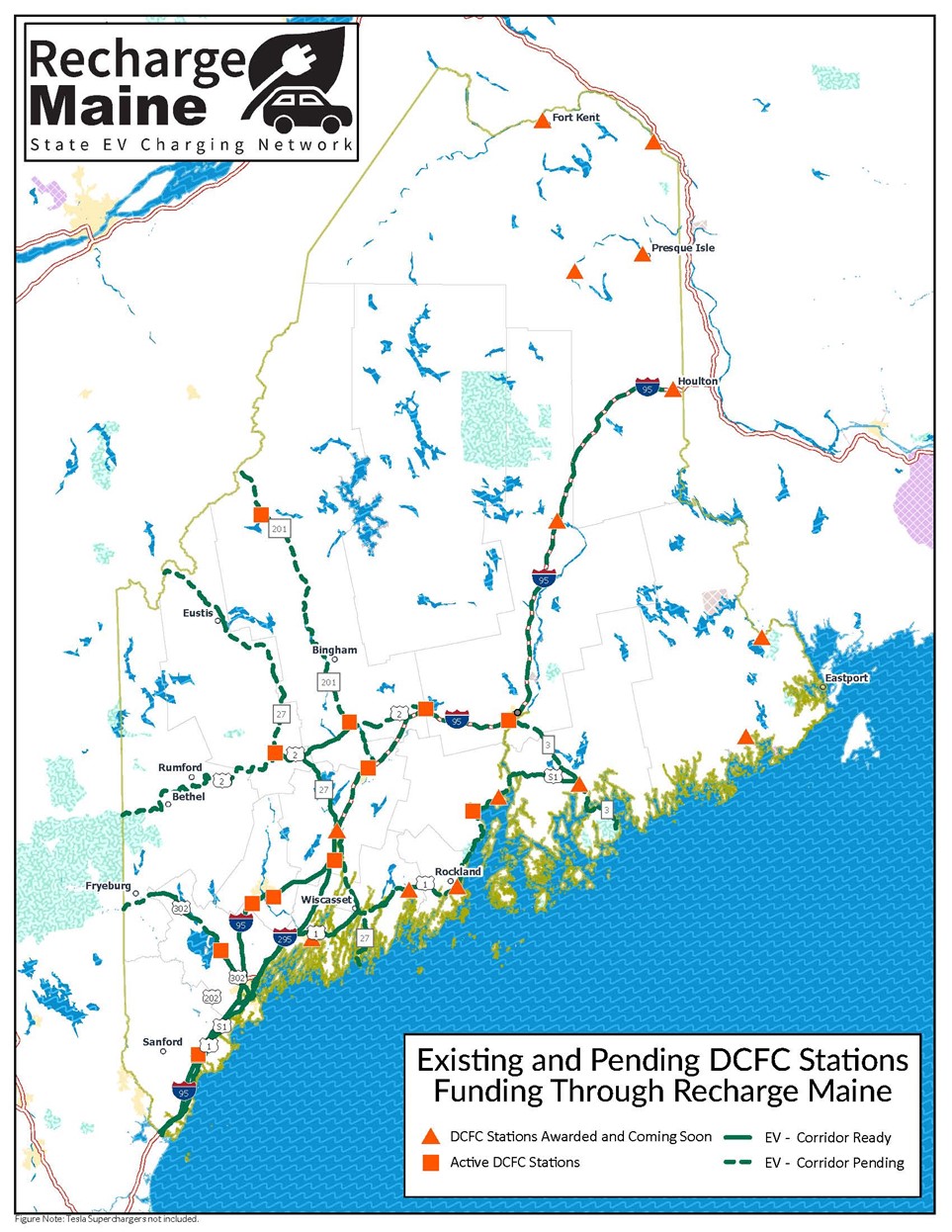 MaineDOT has been working with Efficiency Maine Trust (EMT) to expand electric vehicle charging infrastructure across the state since the VW settlement funds became available in 2018. Between 2018 and 2023, MaineDOT and EMT administered over $7 million in funds to install more than 32 DC fast charger ports and more than 230 Level 2 ports across the state. An additional 59 DC fast charger ports and more than 150 Level 2 ports have also been awarded and are awaiting installation. The state has received $8 million for public EV charging infrastructure through the Maine Jobs and Recovery Plan (MJRP), $18 million in funds from the National Electric Vehicle Infrastructure (NEVI) program to build a national network of EV chargers through the Bipartisan Infrastructure Law (BIL), and was recently awarded $15 million in discretionary funds through the BIL’s Charging and Fueling Infrastructure Program to support Recharge Maine, the statewide initiative to expand public level 2 and DC fast chargers in Maine. Review Maine's CFI application (PDF) for more information.
MaineDOT has been working with Efficiency Maine Trust (EMT) to expand electric vehicle charging infrastructure across the state since the VW settlement funds became available in 2018. Between 2018 and 2023, MaineDOT and EMT administered over $7 million in funds to install more than 32 DC fast charger ports and more than 230 Level 2 ports across the state. An additional 59 DC fast charger ports and more than 150 Level 2 ports have also been awarded and are awaiting installation. The state has received $8 million for public EV charging infrastructure through the Maine Jobs and Recovery Plan (MJRP), $18 million in funds from the National Electric Vehicle Infrastructure (NEVI) program to build a national network of EV chargers through the Bipartisan Infrastructure Law (BIL), and was recently awarded $15 million in discretionary funds through the BIL’s Charging and Fueling Infrastructure Program to support Recharge Maine, the statewide initiative to expand public level 2 and DC fast chargers in Maine. Review Maine's CFI application (PDF) for more information.
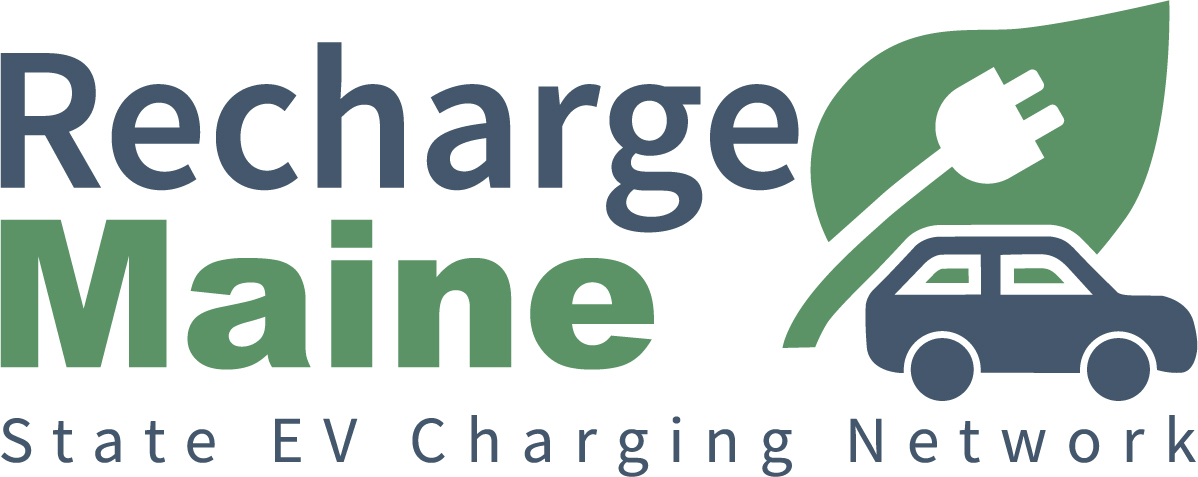
MaineDOT worked with Efficiency Maine Trust and other state agencies to develop a Plan for Electric Vehicle Infrastructure Deployment describing how the NEVI funds would be used to expand the electric vehicle charging network across the state. This plan was approved for implementation by the FHWA in September 2023.
The 2023 NEVI Plan focuses on implementation of the $18M of NEVI funding available but also incorporates the overall Recharge Maine plan, including Maine Jobs and Recovery Plan (MJRP) funding and discretionary CFI funding. The Recharge Maine strategy (as seen in the below map) has been thoughtfully developed to utilize available funding sources concurrently while meeting the varying requirements of the funding sources. While the NEVI funding is required to be spent on designated alternative fuel corridors, MJRP funds and CFI community grants can support infrastructure in other locations across the state.
Recharge Maine recently announced 6 new DC fast charger sites awarded with NEVI funds in Augusta, and along Route 1 between Freeport and Ellsworth, as well as 5 new DC fast charger sites awarded with MJRP funds along the most traveled routes to the Crown of Maine and to the eastern border with New Brunswick. Take a look at the news release for more information. Open funding opportunities are available on EMT’s website.
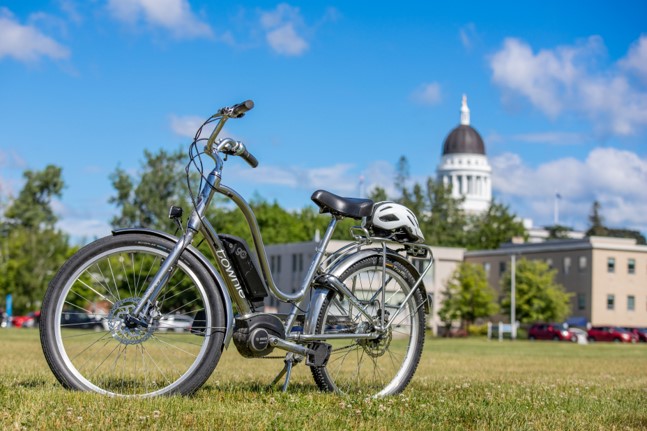
- MaineDOT has supported an e-bike bikeshare program in Portland since late summer 2022, and, in partnership with Bicycle Coalition of Maine, is operating a small fleet of e-bikes that are available for e-bike demonstrations at public or corporate events to promote bicycle commuting, safety, and the use of e-bikes as a transportation alternative. Reach out to Dakota.Hewlett@maine.gov for more information or to inquire about scheduling an e-bike demo.
- MaineDOT is pursuing other e-bike initiatives with other state agencies around workforce transportation utilizing e-bikes.
MaineDOT provided financial support for the first four battery electric buses and associated charging infrastructure for Greater Portland Metro and Biddeford-Saco-OOB Transit. The buses are now in operation and the charging infrastructure has been installed.
In addition, MaineDOT hired a consultant (HATCH LTK) to develop a best practices summary for transit vehicle electrification and, in collaboration with eight transit providers, complete individual fleet transition analyses and develop plans for transitioning select transit bus fleets to electric or hybrid vehicles. Details such as bus replacement schedules and recommended facility upgrades will position Maine’s transit agencies for discretionary grant funding and ultimately more successful adoption of battery electric buses. The plans for each transit agency are available at the links below.
- Bangor Community Connector (PDF)
- BSOOB (PDF)
- CityLink (PDF)
- Downeast (PDF)
- Metro (PDF)
- RTP (PDF)
- SPBS (PDF)
- YCCAC (PDF)
Hatch has begun working on transition plans for Kennebec Valley Community Action Program (KVCAP), Waldo Community Action Partners, and Western Maine Transportation Services. Hatch will resume work on these plans and begin work on a transition plan for Aroostook Regional Transportation System pending finalization of the contract extension.
MaineDOT worked with Hatch to apply on behalf of seven transit agencies for FTA’s Low or No Emission Vehicle grant in April but was not successful in this round of Low No grants.
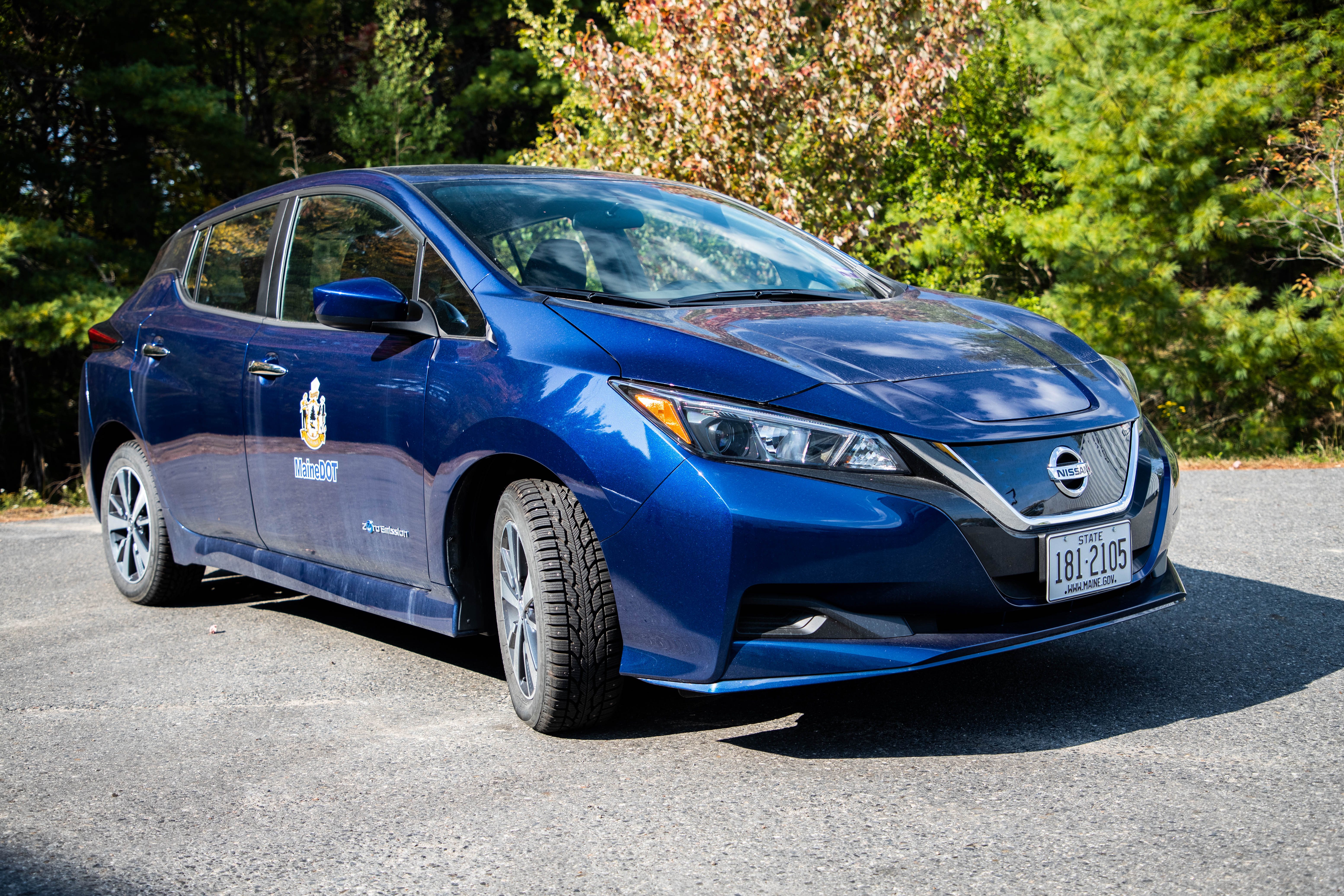 MaineDOT leases an electric vehicle for staff in the headquarters office to use for business travel, which offers staff the opportunity to test drive an electric vehicle and learn to utilize the charging equipment. Similarly, MaineDOT has installed electric vehicle charging equipment at all regional offices and at several camps across the state. The use of electric vehicles and installation of the charging equipment works towards reducing emissions in support of the state climate action plan, as well as the State’s lead by example efforts.
MaineDOT leases an electric vehicle for staff in the headquarters office to use for business travel, which offers staff the opportunity to test drive an electric vehicle and learn to utilize the charging equipment. Similarly, MaineDOT has installed electric vehicle charging equipment at all regional offices and at several camps across the state. The use of electric vehicles and installation of the charging equipment works towards reducing emissions in support of the state climate action plan, as well as the State’s lead by example efforts.

